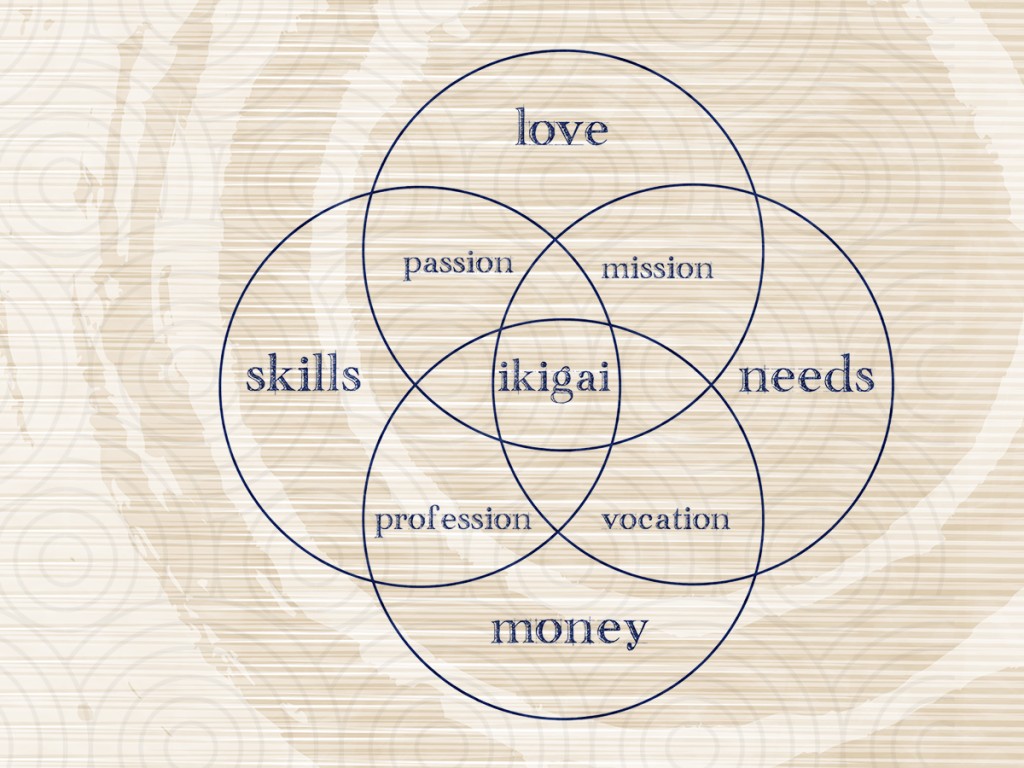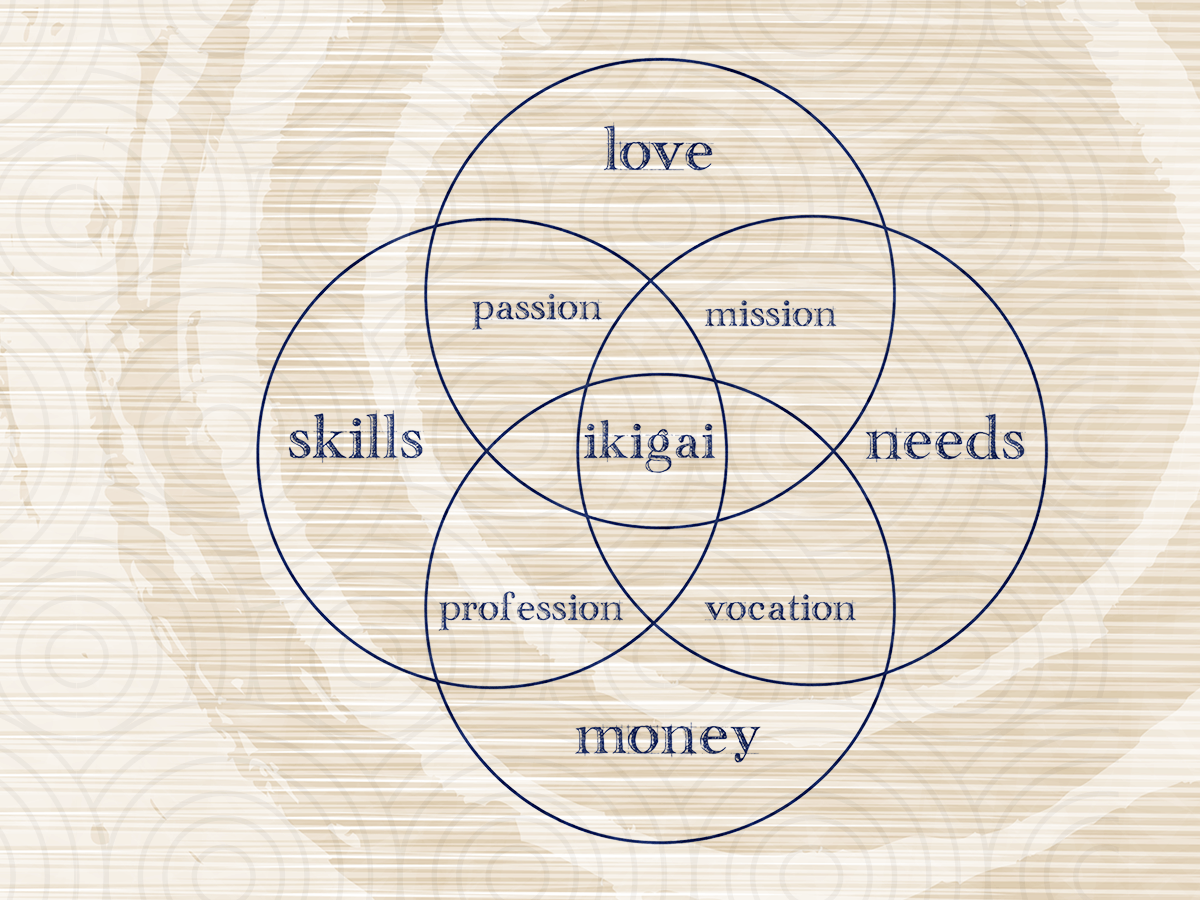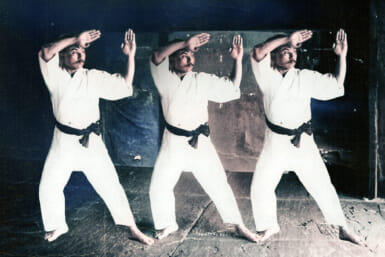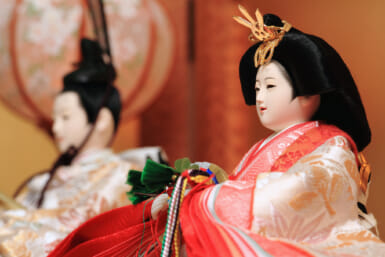Possibly the next buzzword to come out of Japan, ikigai refers to one’s reason for being, and is already the subject of numerous books. But can it really help to change your life?
The latest life philosophy hitting the Western world is based on the Japanese principle of ikigai. Maybe you already know your hygge from your feng shui, but this one won’t require investing in scented candles, rearranging your furniture, meditating, or picking up objects and deciding whether they spark joy or not. The Japanese word ikigai originates from the kanji for iki meaning “life” and kai meaning “worth and value,” roughly translated into English as “a purpose for living” or basically “a reason to get up in the morning.” Before the cynics shrug off the idea of such a grand promise of self-discovery, you should know that ikigai is fairly undemanding yet fundamental in its teachings – simply figuring out what makes us happy and finding purpose and satisfaction in our daily lives.
Two books on the subject, released in English, offer a wealth of information and advice for the mildly curious or the serious seeker of happiness. Until now, the concept has generally been summarized for foreign audiences in the straightforward form of a Venn diagram, with four important aspects overlapping: What you love, what you’re good at, what the world needs, and what you can be paid to do. Through looking closely at your passions, occupation, vocation and mission, you can apparently discover your central purpose: your ikigai.
Read Up on Ikigai in English
The diagram is perhaps a rather simplistic route to enlightenment, but deeper insight can be found by understanding the significance and practicalities of ikigai for the Japanese people themselves.
Ken Mogi’s The Little Book of Ikigai is an excellent place to start. Mogi is a neuroscientist and bestselling Japanese writer, having published over 30 papers and around 100 books in Japan, and earned himself a devout social media following for his down to earth and accessible mix of science, sociology and philosophy. Following the devastating 2011 earthquake, Mogi was the first Japanese speaker invited to give an overseas TED talk, in which he spoke about Japanese psychology, community spirit and the nation’s ability to maintain a positive outlook. He has an insider perspective coupled with a rational scientific background, so when it comes to tips for living well, his are certainly trustworthy hands to be in.
The Little Book of Ikigai explores traditional values through personal accounts, historical facts and storytelling whilst helping the reader discover how ikigai can contribute to happiness, success and financial gain, tackling the cognitive factors involved at the same time. Mogi puts great emphasis on the presence of ikigai in pastimes and hobbies, and his inclusive approach reinforces that your life’s purpose doesn’t have to be as ambitious as striving for a Nobel Prize. It could be found in your career (whether you’re a cleaner or a CEO doesn’t matter), or in raising a family, but it can also be seen in the passion of trainspotters, the affinity of an amateur sports team or the fulfillment of practicing arts and crafts. Finding and acknowledging the pleasure and the satisfaction in small details is important to our daily joy. Taking the time to complete tasks properly, having gratitude for people who help us, recognizing modest achievements, supporting others – all of these things contribute to the motivation and harmony that’s felt in Japan.
Offering a slightly different perspective, the authors of Ikigai – The Japanese Secret for a Long and Happy Life spent several months in Okinawa, interviewing locals and compiling their research. Hector Garcia, a long-term resident of Japan, and award-winning author Francesc Miralles unlock the secrets of the islanders’ incredible health – they boast some of the longest lifespans on the planet – and happiness. The writers narrow down their findings to 10 conclusive “rules of ikigai,” covering general good advice from staying active in old age to smiling more and living in the moment, with a few more specific suggestions like living harmoniously with nature or hara hachi bu – only eating until you are 80% full. Their recipe for happiness must be good cooking: the Spanish and Dutch editions have already made it to their respective bestseller lists.
It seems the outside world’s fascination with Japan’s ancient and traditional ways continues to captivate, perhaps aided by a global obsession with a search for personal longevity. And now that the publishing world is shining a light on this unique aspect of Japanese culture, this single word may well become the umbrella term for all Japanese-inspired advice relating to living a long and fulfilling life.
What Do Japanese People Think of Ikigai?
For most people born in Japan, however, the notion of instructional books or diagrams is quite an unnecessary approach to ikigai. Ayano, a web designer in Tokyo explains: “I think we don’t talk about ‘what is our ikigai’ that much. I keep that inside of myself … of course not all Japanese people live their life this way, but if we find some ikigai, then we can overcome some of the difficulties and challenges in our life.” She continues: “We are raised to think that we can do even difficult tasks because of ikigai, and ikigai in turn makes us happy when we do things.”
Naoki, an IT technician, suggests it’s not so much something Japanese people look for as something that’s already there, but adds, “To be honest, it’s more common to hear the word used like the punchline in a joke. For example: a tired businessman finally gets to the bar late at night, drinks his first sip of beer and says ‘this is my ikigai!’ … Actually maybe that’s not really a joke…”
How to Find Your Ikigai
Regardless of how seriously you want to take it, there is undoubtedly some benefit to stopping and taking a look at our lives. You don’t need to make drastic changes; just take a minute to consider and be mindful of what you already have. There is certainly a lot of inspiration that might encourage us to deal with some of our own issues of selfishness, fickleness and daily dissatisfaction. For those on board with ikigai, the secret to happiness lies not in dramatic adjustments or momentous achievements, but in acknowledging the small pleasures of daily life, and better appreciating our surroundings. For the Japanese it seems the mere existence of the word brings a measure of happiness – so perhaps that’s a good place to start.
Ikigai: The Japanese Secret to a Long and Happy Life by Hector Garcia and Francesc Miralles is published by Hutchinson, and is available on Amazon Japan for ¥1,987.
The Little Book of Ikigai: The Japanese Guide to Finding Your Purpose in Life by Ken Mogi is published by Quercus, and is available on Amazon Japan for ¥1,474.
This article was updated in October 2021.










